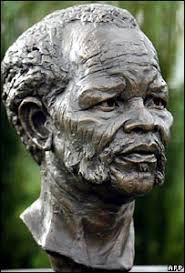Oliver Tambo, a prominent South African anti-apartheid activist and politician, returned to his home country on 13 December 1990 after spending over 30 years in exile. Tambo had been elected National Chairperson of the African National Congress (ANC) in July of the same year, and his return was made possible due to the legalization of the ANC.
Tambo’s return was met with a great deal of support, including from some of his old rivals. This was a testament to the respect and admiration that he had earned during his many years of activism and struggle against the oppressive apartheid regime.
However, Tambo’s return was not without its challenges. In 1989, he had suffered a stroke that had left him with some physical limitations. As a result, he found it more difficult to fulfil his duties as President of the ANC upon his return. In 1991, Nelson Mandela took over as president of the ANC, allowing Tambo to step down from this role.
Despite stepping down from the presidency, Tambo remained an important figure in the ANC. The congress created a special position for him as the National Chairman, a role in which he continued to serve until his death in 1993.
Tambo’s return to South Africa was a significant moment in the country’s history, marking the end of an era of exile and the beginning of a new chapter in the struggle against apartheid. His leadership and dedication to the cause of freedom and equality continue to inspire people around the world to this day.
Throughout his life, Tambo was known for his commitment to non-violent resistance and his belief in the power of dialogue and negotiation to bring about change. He worked tirelessly to promote the rights and interests of all South Africans, regardless of their race or ethnicity, and his legacy remains an important part of the country’s history.
In conclusion, Oliver Tambo’s return to South Africa after over 30 years in exile was a significant moment in the country’s history. Despite facing physical limitations due to his stroke, Tambo continued to play an important role in the ANC, serving as National Chairman until his death in 1993. His commitment to non-violent resistance and his belief in the power of dialogue and negotiation continue to inspire people around the world to this day.
